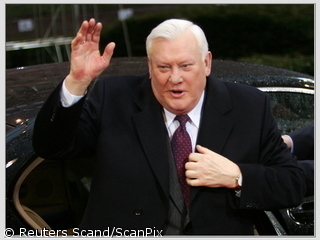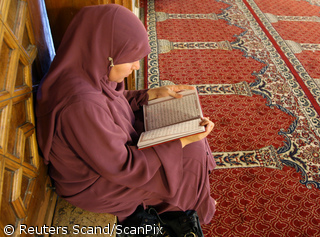Touted by the East German leadership as a barrier against "fascist provocation," the Wall was really an attempt to stop waves of skilled workers and educated people leaving a repressive state
Published:
10 November 2004 y., Wednesday
Touted by the East German leadership as a barrier against "fascist provocation," the Wall was really an attempt to stop waves of skilled workers and educated people leaving a repressive state. Around 3 million fled between 1945 and 1961, when the Wall went up. In time, it became etched in the Western consciousness as a symbol of inhumanity. More than 100 people were picked off by border guards while trying to escape; dozens of others were killed by mines.
However, by November 9, 1989, deep political shifts had prepared the ground for an earthquake. Leader Erich Honecker had been forced to resign and 4 million people had demonstrated for democracy. On that momentous day, the government's spokesman Guenther Schabowski announced that East Germans could go to West Germany if they applied for a visa.
Within minutes, people swarmed around the wall's border posts in what amounted to a siege. At midnight, they broke through to West Germany. That sounded the death knell for the Cold War and set the stage for German reunification a little more than a year later. But 15 years on, a very different kind of mass mobilisation took place. The demonstrations in Leipzig this August highlighted the economic plight of the former East German regions, where unemployment is double that of the western part.
When the old regime collapsed, many skilled workers found themselves on the wrong side of supply-and-demand economics.
Šaltinis:
euronews.net
Copying, publishing, announcing any information from the News.lt portal without written permission of News.lt editorial office is prohibited.
The most popular articles
 The use of animals in scientific experiments could soon be reduced by new legislation, approved by the Agriculture Committee on Monday, which strives to strike the right balance between improving animal welfare and assisting research against diseases.
more »
The use of animals in scientific experiments could soon be reduced by new legislation, approved by the Agriculture Committee on Monday, which strives to strike the right balance between improving animal welfare and assisting research against diseases.
more »
 EU holidaymakers travelling by plane or train are protected by a whole range of consumer rights.
more »
EU holidaymakers travelling by plane or train are protected by a whole range of consumer rights.
more »
 The European Commission welcomes the European Parliament voting in favour of a regulation on rights of passengers travelling by sea and by inland waterways.
more »
The European Commission welcomes the European Parliament voting in favour of a regulation on rights of passengers travelling by sea and by inland waterways.
more »
 Mobile phones, computers, TVs - we like them but where do they go when we are finished with them? In the worst case they can be dismantled by hand for scrap by children in developing countries.
more »
Mobile phones, computers, TVs - we like them but where do they go when we are finished with them? In the worst case they can be dismantled by hand for scrap by children in developing countries.
more »
 Following the death of President Algirdas Mykolas Brazauskas, on 28 June Lithuanian Embassies abroad opened the door for people, who want to sign the Condolence Book.
more »
Following the death of President Algirdas Mykolas Brazauskas, on 28 June Lithuanian Embassies abroad opened the door for people, who want to sign the Condolence Book.
more »
 Passengers will enjoy easier access to information about their rights when travelling by rail or air thanks to a Europe-wide publicity campaign in 23 languages launched by the European Commission today.
more »
Passengers will enjoy easier access to information about their rights when travelling by rail or air thanks to a Europe-wide publicity campaign in 23 languages launched by the European Commission today.
more »
 Lithuania has been grieved by the heartbreaking news about the decease of Algirdas Mykolas Brazauskas, former President, Prime Minister, Signatory to the Act of Independence, and the first Head of State of Lithuania after the Restoration of Independence.
more »
Lithuania has been grieved by the heartbreaking news about the decease of Algirdas Mykolas Brazauskas, former President, Prime Minister, Signatory to the Act of Independence, and the first Head of State of Lithuania after the Restoration of Independence.
more »
 We have lost a warm person and a prominent politician who had been at the wheel of state at challenging and difficult stages in the history of Lithuania.
more »
We have lost a warm person and a prominent politician who had been at the wheel of state at challenging and difficult stages in the history of Lithuania.
more »
 Europe's financial and economic crisis is increasingly becoming a social crisis too, and is testing European solidarity to the limit.
more »
Europe's financial and economic crisis is increasingly becoming a social crisis too, and is testing European solidarity to the limit.
more »
 In a move to enforce a style of dress they believe is in accordance with sharia law, the authorities in the Muslim Indonesian province of West Aceh are handing out long skirts to women wearing tight pants.
more »
In a move to enforce a style of dress they believe is in accordance with sharia law, the authorities in the Muslim Indonesian province of West Aceh are handing out long skirts to women wearing tight pants.
more »